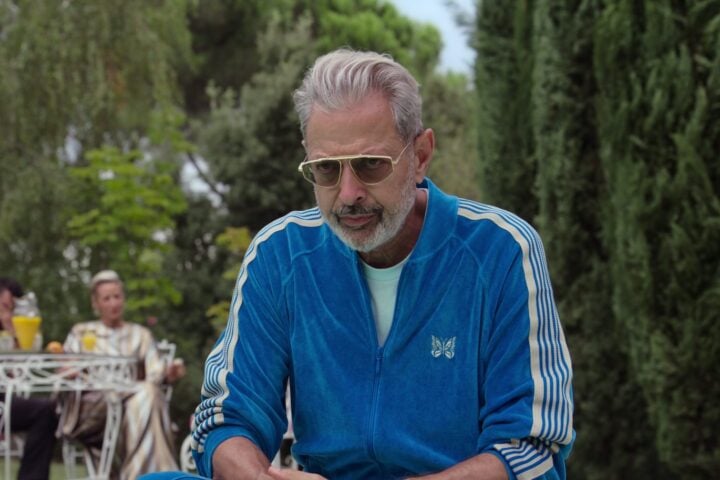In her poem “Theory of Memory,” Louise Glück contemplates her fantastical past lives before gaining awareness of the present, noting “all the rest is hypothesis and dream.” It’s a sentiment that relates to a core conceit of the true crime genre, and could describe the labyrinth of fantasies that Landscapers’s main characters find themselves living in after committing a gruesome crime that would go undiscovered for 15 years.
Landscapers is inspired by the 2014 conviction of Susan and Christopher Edwards (Olivia Colman and David Thewlis) for murdering Susan’s parents, William and Patricia Wycherley (David Hayman and Felicity Montagu), and burying them in their backyard in 1998. The four-part miniseries stands out amid the current gold rush of true crime dramas due to Edward Sinclair’s surprisingly funny script and director William Sharpe’s meticulous visual embellishments. Though they draw liberally from the grisly murders themselves, they’ve crafted a tragicomic story that’s more concerned with the Edwards as an insular couple devotionally in love with one another than the motivations and particulars of the crime itself.
The series opens with a disclaimer that “this is a true story” before the word “true” fades, pointedly turning the statement into “this is a story.” We’re quickly introduced to the Edwards in France, where they’ve been going about their humdrum lives for 15 years. Christopher can’t get a job on account of his poor French, while Susan’s passion for Hollywood memorabilia only exacerbates their financial struggle, as the money she spends on a limited edition poster of High Noon could have gone toward their overdue rent. Christopher’s protectiveness of Susan—exhibited by his favorite adjective for her, “fragile”—underscores his devotion, and Susan loses herself to an imaginary world where Christopher is the lead in the westerns she loves.
There’s a sense that this couple, stuck in their flawed ways, is too mild or too dim, to commit a grisly murder, and at first they easily solicit our pity. This innocuous image, though, is shattered when Christopher decides to contact his stepmother in England for a loan after a failed job interview. She contacts the police after Christopher confesses to the murder of Susan’s parents. This introduces a litany of supporting characters, including Detective Constable Emma Lancing (Kate O’Flynn) and her prickly superior, Detective Chief Inspector Tony Collier (Daniel Rigby), who provide a breath of comic relief to what is otherwise a grim storyline that plays out in jail cells and interrogation rooms.
The Edwards are held in custody and isolated from one another, and though they’re initially unfazed by their questioning by police, Lancing soon gets the couple flustered enough to expose contradictions in their alibis. It’s at this point in the series morphs into a study of Susan’s traumatic childhood and unstable mental state. The depiction of her love for cinema becomes increasingly surreal as the story progresses, such as the fantasy sequences that remix the Wycherleys’ autopsy and the Edwards’ questioning by authorities. Characters break the fourth wall and seamlessly exit out of one immaculate movie set piece into another—visual tricks that feel like they were pulled from Kon Satoshi’s Paprika or Millennium Actress.
Yet one gets the feeling that all those set pieces exist merely to pad out the story of the trial. Colman’s portrayal of Susan and the woman’s quietly stomach-churning volatility is strongest when we aren’t in the realm of fantasy. Otherwise, the show’s cinematic spectacle has a way of dimming the emotional details of Susan and Christopher’s life leading up to their crime.
Since 2001, we've brought you uncompromising, candid takes on the world of film, music, television, video games, theater, and more. Independently owned and operated publications like Slant have been hit hard in recent years, but we’re committed to keeping our content free and accessible—meaning no paywalls or fees.
If you like what we do, please consider subscribing to our Patreon or making a donation.





